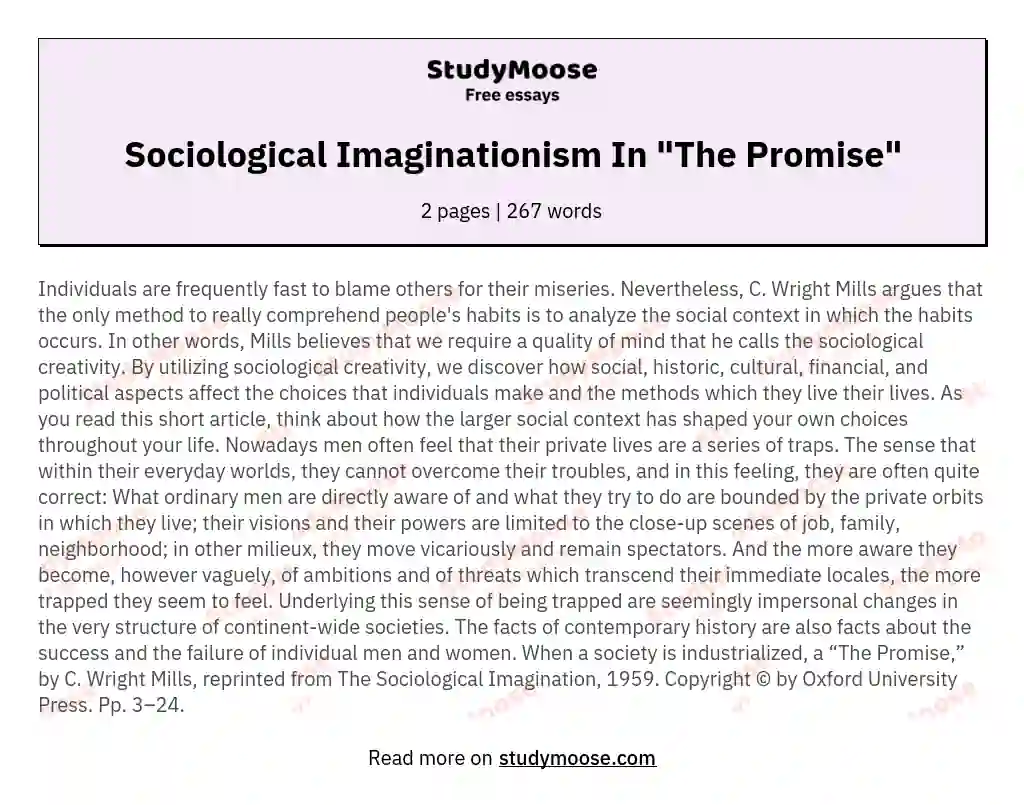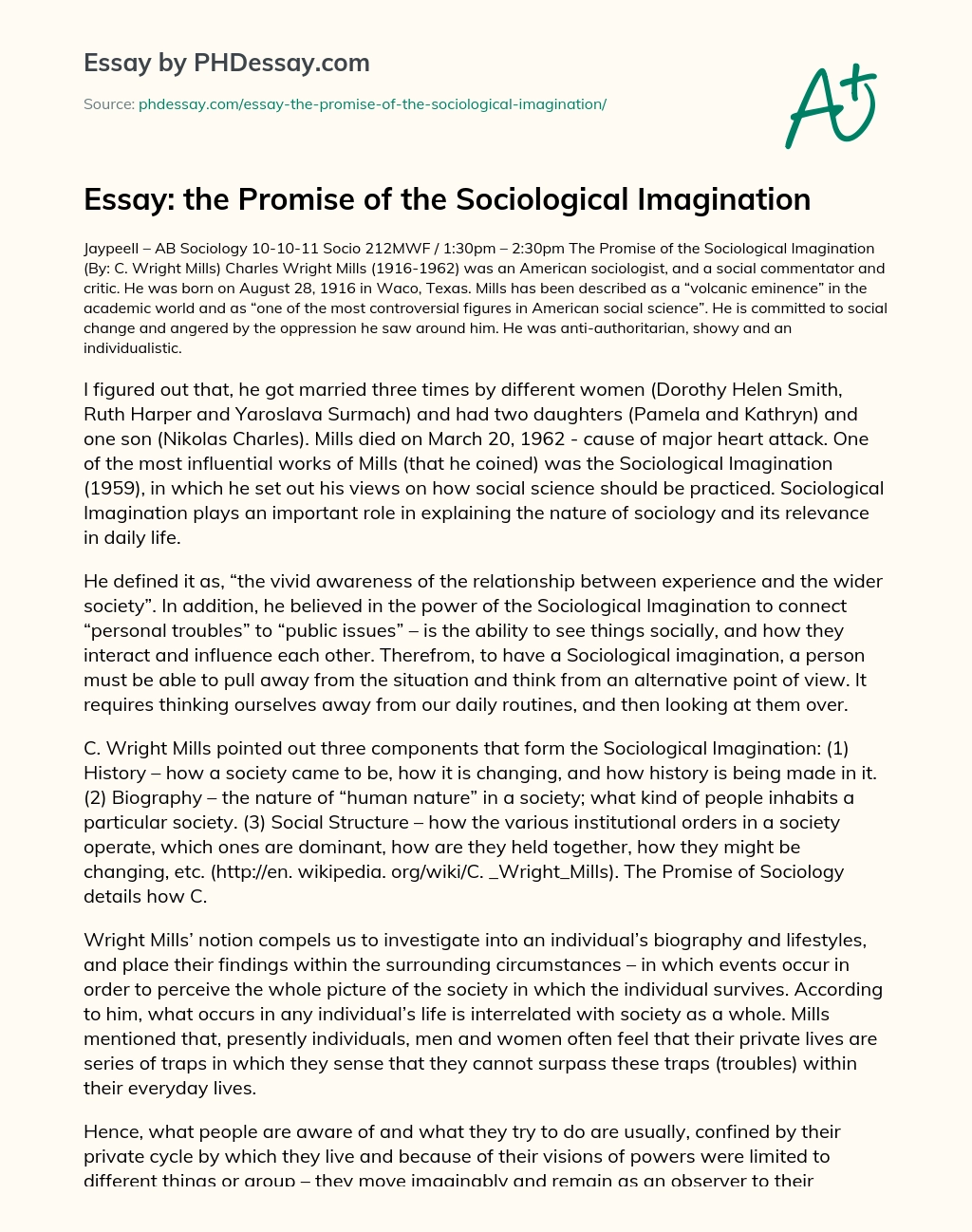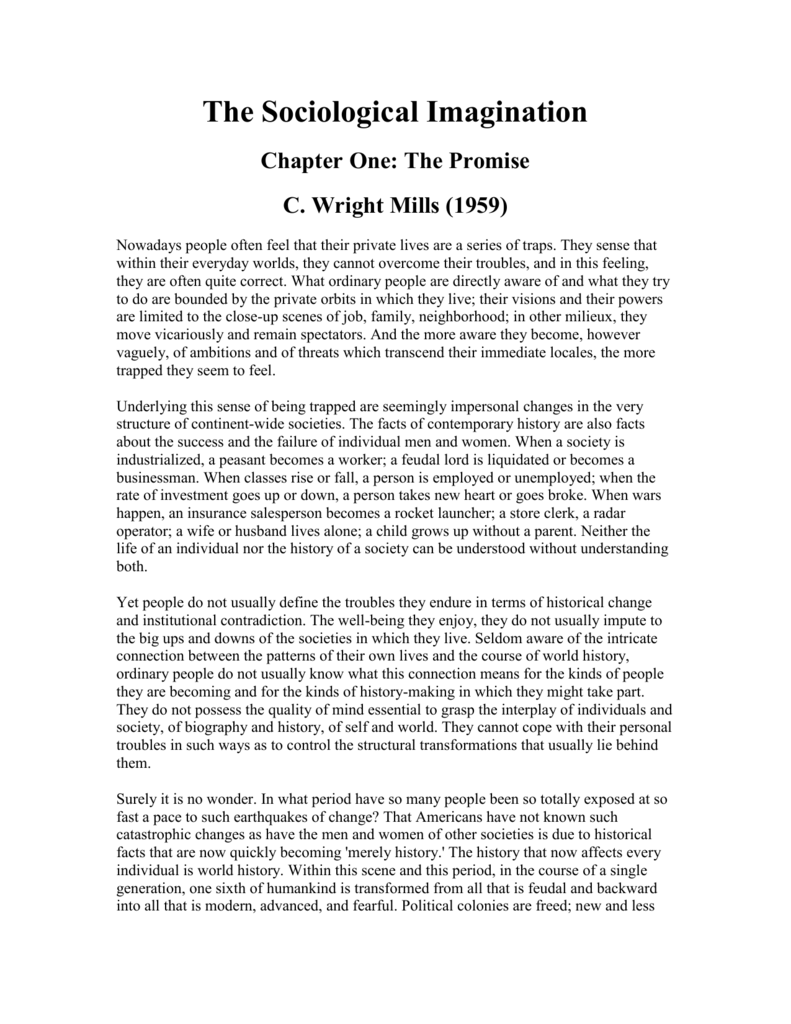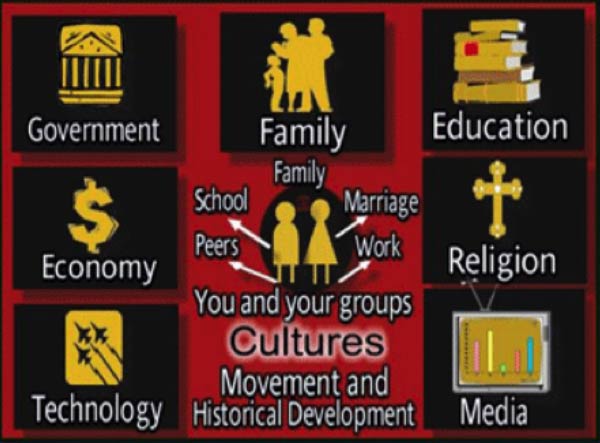The concept of the sociological imagination, introduced by sociologist C. Wright Mills in 1959, refers to the ability to see the connections between one's personal experiences and the larger society in which they occur. Mills argued that individuals often fail to grasp the social forces at work in their own lives, instead attributing their circumstances to their own personal defects or successes.
According to Mills, the sociological imagination allows individuals to understand the social, historical, and cultural contexts in which their personal experiences take place. It enables people to see that their personal problems, such as unemployment or relationship issues, are not simply the result of their own actions or characteristics, but are also shaped by larger societal structures and processes.
One key aspect of the sociological imagination is the recognition of the power dynamics at play in society. Mills argued that individuals often have little control over the social, economic, and political forces that shape their lives, and that these forces can have significant impact on individual outcomes.
For example, an individual who grows up in poverty may struggle to escape it due to systemic barriers such as lack of access to education or job opportunities. Recognizing these larger societal structures and the ways in which they shape individual experiences can help individuals to understand and potentially challenge these systems.
In addition to understanding the social forces at work in their own lives, the sociological imagination also allows individuals to understand the broader social issues of their time. This can involve examining issues such as inequality, racism, and injustice, and understanding how they are shaped by larger social, economic, and political structures.
Overall, the sociological imagination is a valuable tool for understanding the complex and interconnected nature of society and the ways in which it shapes our lives and experiences. By recognizing the social forces at work in our own lives and the broader social issues of our time, we can gain a deeper understanding of the world around us and potentially work towards creating a more just and equitable society.






